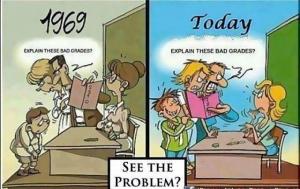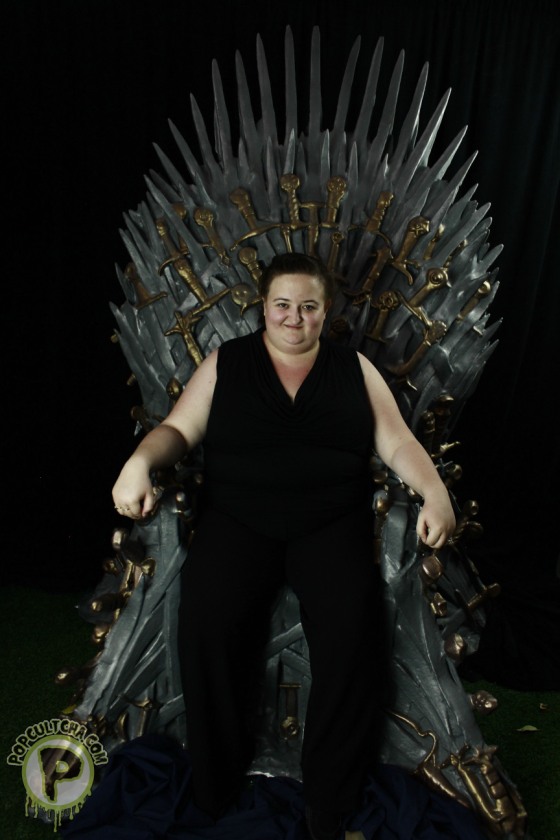During the beginning of this journey into the world of the teacher librarian this blogger thought she had at least a decent idea of what this role entailed, boy was she wrong! After having observed lessons from a well-established teacher librarian and conducting a few myself, this is the impression I had of the role of the teacher librarian…
- Read stories to students
- Facilitate borrowing and returning of resources
- Teach students how to understand and navigate the dewy-decibel system
- Assist students, teachers, staff and the school community in locating appropriate resources
- Add new resources to the library system
- Facilitate school book fairs
- Promote reading in the school community
- Reinforce any areas of learning in the classroom, as specified by the classroom teacher
Now it is clear that while these are some of the aspects of the role of the teacher librarian, the role is far more extensive and complex.
Through personal experience there was some understanding of the relationship between a teacher librarian and a school principal ‘If another teacher was ill, I would be removed from the library and placed on the class in the name of “consistency”, the library was treated as a way to cover teachers RFF and not as a vital component in its own right’ (Cunningham, 2014). However, through investigating for the blog post ‘Principal support for the teacher librarian, what is it? And how to get it?’ it was clear more than ever the impact that a principal can have on the perceived value of the teacher librarian within the school. The investigation reinforced the understanding that a teacher librarian cannot just expect to have the support from the school principal; it is up to the teacher librarian to earn it. They cannot earn support simply by saying what they are doing in the school, although ‘regular communication on the library initiatives, development needs, and collaborative projects helps’ (Australian Library and Information Association [ALIA] & Australian School Library Association [ASLA], 2012; Oberg, 2006). No, they must demonstrate to the principal that they are valuable to the school via demonstrations of leadership from in-service training to staff and collaboration with staff on programs and units of work.
While collaboration seemed to be a vital aspect of any successful school environment, collaboration was always envisioned as being between fellow teachers working within the same stage or the same faculty. The importance of collaboration between teachers and teacher librarians never seemed to be as critical to the success of a school. Not anymore… It is now clear that by ‘combining areas of expertise’ (Todd, 2008, p. 23) the specialised skills that a teacher librarian has, can go a long way to ‘assist in the navigation of this field and help enhance’ (Cunningham, 2014) both programs and their required resources.
As a child born on the cusp of generations X and Y the use of technology to find information is engraved on my brain, no thoughts were ever given to the extent of the impact that technology has on the teacher librarian profession. For it has always been prominent in my world. However, while investigating the importance of “Using evidence-based practice to promote teacher librarian services” for this blog, it was shocking to learn how some are viewing the teacher librarian profession as obsolete. While yes, libraries and therefore teacher librarians must learn to expand beyond the traditional paper text and embrace all that technology has to offer such as ebooks and virtual classrooms; it does not mean that there is no room for the profession in today’s society. In fact, it may be more important than ever!
While information may be available from more sources than ever before, people and students are still going to be faced with the challenge of navigating, as well as understanding these sources and although the development of information processing models in schools should be the ‘responsibility of all staff’ (NSW Department of Education and Training, 2007, p. 10) it is the teacher librarians who often lead staff development on the subject and facilitates school-wide initiatives. The importance of developing information literate students cannot be underestimated ‘Is information literacy just a set of skills?’ yes, yes it is. The mind of this blogger has been well and truly blown over the challenges faced, the opportunities provided to, the responsibilities of and the absolute importance of the teacher librarian to the school community of today. No longer do the day-to-day mechanics of the role of the teacher librarian spring to mind but a complex tapestry of the diverse nature of the role of the teacher librarian.
References.
Australian Library and Information Association & Australian School Library Association. (2012, Dec 10). Standards of professional excellence for teacher librarians. Retrieved Dec 1, 2013, from Australian School Library Association: http://www.asla.org.au/policy/standards.aspx
Cunningham, L. (2014, Feb). Forum Posts. Retrieved Feb 10, 2014, from ETL401 201390W D: http://forums.csu.edu.au/perl/forums.pl?task=forums&forum_id=ETL401_201390_W_D_Sub2_forum
NSW Department of Education and Training. (2007). Information skills in the school: engaging learners in constructing knowledge. Retrieved Feb 5, 2014, from Curriculum support: http://www.curriculumsupport.education.nsw.gov.au/index.htm
Oberg, D. (2006, Feb). Developing the respect and support of school administrators. Teacher Librarian , 33 (3), pp. 13-18.
Todd, R. J. (2008). The dynamics of classroom teacher and teacher librarian instructional collaborations. Scan , 27 (2), 19-28.

